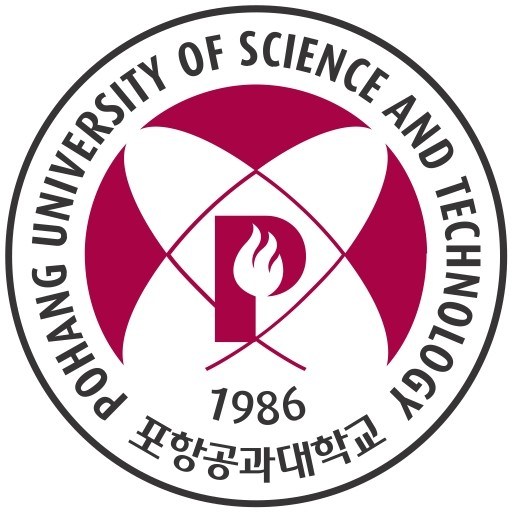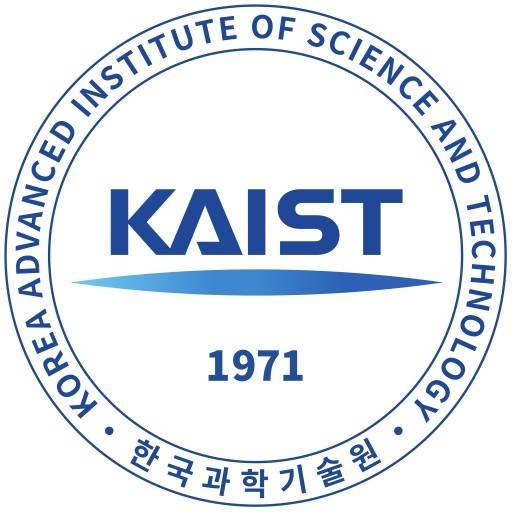Photos of university
IT Convergence Engineering at POSTECH is a comprehensive interdisciplinary program designed to equip students with the knowledge and skills necessary to lead innovation in the rapidly evolving field of information technology. This program integrates core areas such as computer science, electrical engineering, and data science with emerging technologies including artificial intelligence, Internet of Things (IoT), big data analytics, and embedded systems. The curriculum emphasizes both theoretical foundations and practical applications, enabling students to develop robust problem-solving capabilities and innovative solutions for complex technological challenges.
Students enrolled in IT Convergence Engineering have access to cutting-edge laboratories and research facilities, fostering hands-on experience through projects, internships, and collaborative research opportunities. The program prepares graduates to pursue careers in diverse sectors such as software development, hardware design, telecommunications, automotive technology, robotics, and digital media. Emphasizing the importance of interdisciplinary knowledge, the program encourages students to work across traditional boundaries, integrating hardware and software perspectives to create comprehensive IT solutions.
Through a combination of coursework, projects, and industry engagement, students learn about system integration, cybersecurity, data management, and cloud computing, ensuring they are well-versed in current industry standards and trends. The program also promotes entrepreneurial thinking and innovation, supporting students who aspire to develop their own startups or contribute to technological startups. Faculty members are leading experts in their respective fields, fostering an environment of academic excellence and innovative research.
Graduates from IT Convergence Engineering are highly sought after in the global job market, thanks to their versatile technical expertise and problem-solving mindset. They are prepared to contribute to the development and deployment of next-generation IT infrastructure, smart devices, and intelligent systems that are transforming industries and society. With a strong emphasis on research, practical skills, and industry collaboration, the program aims to cultivate future leaders capable of driving technological progress and addressing societal needs through advanced IT solutions.
The Division of IT Convergence Engineering offers 4 tracks in order to maximize the effects of interdisciplinary education, (1) Autonomics, (2) Communications & Networks, (3) Nano Sensors & Systems, (4) Biotechnology. To maximize the educational benefits for students from various backgrounds, the students must take an “Introduction to IT Convergence Engineering” module to get a basic understanding of the 4 different tracks. The electives are not limited to one track. To understand the convergence of research fields, students in the M.S. & Ph.D combined course and the Ph.D. course must take more than 1 elective in other 3tracks.
[Track 1] Autonomics
Based on theory and technology in computer networks, software engineering and machine learning, this course aims to give students an understanding of the knowledge and technology needed in order to create large autonomous system with the leastpossible participation of human beings. Education and research in the areas including knowledge representation, sensor network communications, analysis using nano sensors, biotechnology based data, system security and design of architecture will be covered.
[Track 2] Communications & Networks
The goal of the Communications and Networks track is to train students to understand the basic concepts and advanced theory of the Communications and Networks area and employ them for various applications. It includes novel modulation/encoding/decoding/demodulation schemes for high-speed multi-antennasystems, the analysis of networking protocols for secure data transport over wireless and wired networks and, the optimization of network control algorithms.
[Track 3] Nano Sensors & Systems
This theme uses research and technology development in nanoscience, nanotechnology and nanoengineering to create novel sensing, electronic, mechanical and fluidic components for low-cost, integrated and miniaturized systems to prepare for existing as well as future needs in the U-Health and U-Environment. It builds on solid courses in education and research using information technology, nano and bio-nano areas and related fields such as ultra-low power wireless transceivers, "intelligent" signal processing hardware and software, novel memory architectures and biosensing systems that will be incorporated into prototypical autonomic systems for U-Health and the U-Environment.
[Track 4] Biotechnology
This course focuses on gaining an the understanding of biological structures and system including signal transduction in a cell, cell division and, genetic expression that are the basic fundamentals used in ubiquitous healthcare systems. Specifically, the course aims to help to understand various the phenomena uncovered by research on biochemical processes from a molecular level to a system level, map forming and memory and to develop and use mathematical methods, to interpret and examine them.
Mandotory
- Introduction to IT Convergence Engineering
- Applications of IT Convergence
Electives Autonomics
- Autonomic Systems
- Ontologies and Semantic Reasoning
- Information and Data Modelling
- Machine Learning
- Probabilistic Graphical Models
- Distributed Processing
- Wireless Network Security
- Self-Protection System
- Graphical Models
- Network and Service Management
- Knowledge Representation, Reasoning and Inferencing
- Advanced Semantic Reasoning and Applications
- Special Topics in Autonomics
Electives Communications & Networks
- Introduction to Random Variable and Process
- Statistical Communication Theory
- Personal Area Networks
- Advanced Computer Networks
- Mobile Networks
- Multimedia Networking
- Estimation Theory
- Robust Control
- Special Topics in Communications & Networks
Electives Nano sensors & Systems
- Introduction to Nano Technology
- Nano Electronics
- Microwave Active Circuits
- RFIC Design
- Analog Integrated Circuits
- Digital Integrated Circuits
- Semiconductor Electronics
- Low Power Integrated Circuits
- Semiconductor Theory
- Advanced Nano Devices
- CMOS Circuits for Sensor Interface
- Nano Bio Sensor Engineering
- Sensor Technology
- Special Topics in Nano Sensors & Systems
Electives Biotechnology
- Bioinformatics
- Advanced Biochemistry
- Biology of Aging
- Frontiers of Interdisciplinary Biosciences
- Advanced Bioengineering
- Advanced Developmental Biology
- Advanced Molecular Genetics
- Special Topics in Biotechnology
Mandatory for Research
- Seminars in IT Convergence Engineering
- Doctoral Dissertation Research
Requirements
- Applicants must fill out the online application.
- Personal Statement and Research Plan - Download format from the website: http://admission.postech.ac.kr/linkUsen.do?f=sub3-2
- Curriculum Vitae (Free style personal resume)
- Copy of Passport
- Signed Consent Form - Download format from the website: http://admission.postech.ac.kr/linkUsen.do?f=sub3-2
- List of Honors and Awards (optional) - Applicants who have received any honors, awards, or fellowships during their undergraduate or graduate studies may list them in the order of importance.
- Application fee: 80 USD or 80,000 KRW
- Official Transcript(s)
- Degree Certificate(s)
- Recommendation Letters - From two recommenders (academic faculty) - Must be e-mailed or sent by post directly by each recommender, enclosed in a sealed envelope.
- Score Report of English Proficiency Test - The official TOEFL/IELTS Score Report issued by ETS/British Council can be sent to POSTECH Graduate Admissions and Student Affairs directly by requesting it at the ETS/ British Council website. Applicants must enter POSTECH’s institution code (0329) in order for ETS to send the official score report to our office. - TOEFL ITP organized only by POSTECH is accepted
- Degree Theses (option
Scholarships
- Korean Government Scholarship Program (KGSP)
- Global Education
- POSCO Asia Fellowship
- SK hynix Fellowship
- POSTECH Teaching or Research Assistantship
- POSTECH Fellowship for Excellent International Students(PFES)
- POSTECH Settlement Allowance for New International Students
The Department of IT Convergence Engineering at Pohang University of Science and Technology is a specialized academic program designed to prepare students for the rapidly evolving fields of information technology, computer engineering, and systems integration. This program focuses on developing a comprehensive understanding of the convergence of IT with other engineering disciplines, aiming to produce experts capable of innovating at the intersection of hardware, software, and network technologies. Students enrolled in this program engage with a curriculum that covers fundamental and advanced topics such as computer architecture, software engineering, data communication, embedded systems, artificial intelligence, cloud computing, cybersecurity, and data analysis. The program emphasizes practical skills through laboratory work, project-based learning, and collaborations with industry partners, which help students to apply theoretical knowledge to real-world problems.
Research opportunities are abundant, with the department actively involved in cutting-edge projects related to Internet of Things (IoT), big data analytics, machine learning, and multimedia systems. Faculty members are distinguished researchers and industry experts committed to fostering innovation and academic excellence. Students are encouraged to participate in national and international conferences, internships, and collaborative research initiatives, which enhance their professional development and global competitiveness. The department maintains state-of-the-art laboratories and research centers dedicated to advancing technology in areas like cloud infrastructure, mobile computing, and intelligent systems.
Graduates from the IT Convergence Engineering program are highly sought after in various sectors including information technology companies, telecommunications firms, software development companies, and government agencies. They often pursue careers in software development, systems integration, network engineering, cybersecurity, AI development, and data science. The program also provides a robust foundation for students interested in pursuing advanced degrees or engaging in entrepreneurial activities focused on technological innovation. With its interdisciplinary approach, strong research environment, and industry collaboration, the department prepares graduates to be leaders capable of addressing the complex technological challenges of the future, fostering sustainable development and digital transformation across multiple industries globally.


